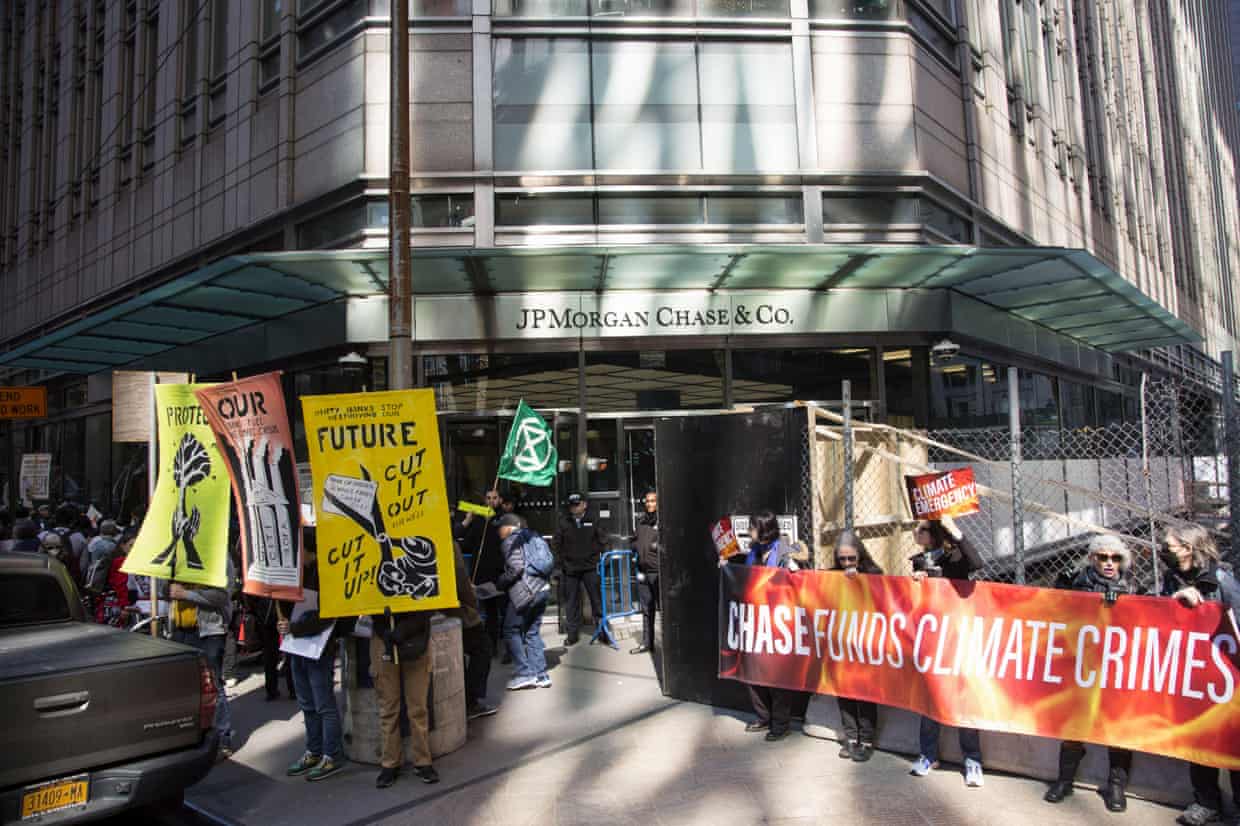A recent report reveals that two-thirds of the world’s largest 65 banks increased their financing to fossil fuel companies by $162 billion from 2023 to 2024. Despite the ongoing climate crisis and previous environmental commitments, these banks have allocated a staggering $869 billion to firms involved in coal, oil, and gas. Compiled by a coalition of eight environmental groups, the report highlights an abrupt reversal from a decline in fossil fuel lending seen in 2021.
Scientists have long warned that no new fossil fuel projects should proceed to avoid catastrophic climate impacts. Last year was recorded as the hottest ever, with numerous disasters resulting from global heating. However, many banks have recently weakened or abandoned their commitments to reduce emissions, influenced by the political climate in the United States, where leadership under Donald Trump dismisses climate science.
The report indicates that four of the five largest fossil fuel financiers in the previous year were American institutions. JPMorgan Chase led with $53.5 billion in lending, followed by Bank of America, Citigroup, and the Japanese bank Mizuho Financial. Wells Fargo rounded out the top five. The largest increases in fossil fuel financing were observed in major American banks, along with Barclays in the UK.
Since the Paris Climate Agreement, where global leaders pledged to combat dangerous global heating, major banks have continued to fund fossil fuel projects. An estimated $7.9 trillion has been funneled into fossil fuel activities since the agreement’s inception.
Critics, including David Tong of Oil Change International, stress the need for government intervention to hold financial institutions accountable for their role in exacerbating the climate crisis. Despite pledges to adhere to the Paris Agreement, many top financial firms have backtracked on their commitments, predicting catastrophic temperature rises.
In January, the six largest American banks withdrew from the net-zero banking alliance, a UN-sponsored initiative aimed at aligning banks’ lending portfolios with Paris goals. This alliance requires banks to set targets and reduce emissions linked to their investments.
Lucie Pinson, director at Reclaim Finance, criticized banks for abandoning climate commitments and increasing fossil fuel financing as global temperatures reach unprecedented levels. While some European banks have made progress, the allure of fossil fuel profits remains strong for many.
A spokesperson for Citi emphasized their commitment to a low-carbon economy, aiming for net-zero greenhouse gas emissions by 2050. They highlighted efforts to support clean energy solutions and transition finance.
Barclays also defended their position, stating their dedication to financing both energy needs and clean energy scaling. They reported a significant increase in sustainable finance compared to 2023 and committed to investing in climate tech startups.
The report, titled ‘Banking on Climate Chaos,’ serves as a stark reminder of the financial sector’s impact on the climate crisis. As banks continue to prioritize fossil fuel financing, the calls for accountability and urgent action grow louder.
Note: This article is inspired by content from https://www.theguardian.com/business/2025/jun/17/world-banks-fossil-fuel-finance-2024. It has been rephrased for originality. Images are credited to the original source.

